V Raghunathan
At the outset, it must be reiterated that corruption is a function of both greed and fear. When the benefits of greed exceed the intensity of fear, corruption is imminent, as is the case in our country. Now the intensity of fear is a product of the probability of being caught and the consequences of being caught. In less corrupt countries, the corrupt have a high probability of being caught and when caught, may have to cough out up to three times the loot and serve stiff sentences, all of which make the intensity of fear very high - typically higher than the benefits of greed. In a country like ours on the other hand, particularly for the big crooks, fruits of greed are plentiful, while the probability of being caught is very low and so are the consequences of being caught. In short, unless we try to create systems which ensure that the intensity of fear exceeds the fruits of greed, we are unlikely to be able to tackle corruption.
Now that is the theory of corruption. Also in theory, it is not as if the law of our land is silent on corruption. It does provide for sundry punishment for the corrupt. Also, in the imagined 'majesty of law' all are equal. But in practice, the seriously rich and the powerful are far more equal than the lesser mortals! For instance, with the enforcement directorate and the CBI operating as the handmaidens of the Government or the ruling political party, the actual probability of bringing the big crooks to book is very small. Also, even in theory, unfortunately, our laws don't provide for very stringent punishment for the guilty. Rarely does it call for exemplary financial penalties even if that means bankrupting the guilty (think back on all the financial scamsters whether Harshad Mehta, Ketan Mehta, Telgi, et al. In practice, even the legal provisions for the guilty are substituted with mere transfers or resignations or molly-coddling in VIP suites of hospitals (think Ramalalinga Raju) when the crooks should be in prisons.
Given this huge gap between the theory and practice of how corruption is to be tackled, here are some suggestions (borrowing from my article 'Beyond the Year of Scams', ET, December 25, 2010), particularly in the light of Mrs. Sonia Gandhi's averred intent to fight corruption.
1. Pass a bill in parliament for transparent state funding of all elections in the country - an issue at the very root of rampant corruption, which trickles corruption down from the very top downwards.
2. Establish a rigorous regulatory regime with fast track courts exclusively for corruption cases. This will also call for fast-tracking of judicial reforms, and brining about extremely stringent punishment for the corrupt.
3. We are aware how corruption hacks away at the roots of patriotism (for example a corrupt sim-card vendor selling away sim-cards to Pakistani Terrorists, or Army Generals usurping apartments meant for war widows, thus demoralizing the armed forces, etc. If Dr. Binayak Sen's playing a postman between some key Maoists is sedition, it is difficult to see why corruption cannot be equated with un-patriotism.
4. Taking a cue from on-line railway reservations that reduced corruption in railway reservations, much of the discretionary powers at lower levels of the government mechanism must be dispensed with in favour of transparent web-based technology for routine governmental payments and receipts, and tracking of all property taxes, tax refunds, stamp duty, passport or RTO applications, licenses and what have you. Apprehensions on how the rural India will make use of such a system may be addressed though internet kiosks manned by ex-service men or self-employed graduates could be a good starting point, much like the STD booths of yore.
5. Discretion on the part of Government minions can also be minimized by simplifying many of the processes. For example, in Scandinavian countries, property taxes are paid on the basis of the frontage of the houses, which entails little computational complications and hence relatively little room for corruption, since there can be little scope for hanky-panky in measuring the frontage of a property.
6. Provide a constitutional status to the Enforcement Directorate and the Central Bureau of Investigation along the lines of the Election Commission, so that they are not handmaidens of any government or political party, and ensure that they shall have the freedom to act independently and speedily against the erring big fish.
7. Along similar lines, the more enlightened states should place the state police force under the powers of a politically insulated Lokayukta.
8. All natural resources and all land owned by the government (local governments included) for sale should be legislated to be offered transparently through on-line bidding mechanism, with highly restricted discretionary powers or exceptions. What is more, the entire process should be available for perusal in the public domain.
9. Concessional land allocation (mostly restricted to prime properties in practically every city) to civil servants, members of judiciary, armed forces, police et al, should be through a clearly spelt out process with due justification which should be made available for scrutiny on the public domain, before the allocation is made.
10. Both parliamentarians and bureaucracy should be extremely well paid, but tolerance for corruption should be brought down to zero. A parliamentarian or a Secretary in the Government of India may be paid a salary as high as, say, Rs. one crore a year, but a corrupt Minister or Secretary should be divested of several times the stolen assets and also awarded rigorous imprisonment of several years.
The problems with such "solutions' is who implements them? How or why would the polity muster the necessary political will to put such reforms in place? To these questions all one can say is that one hopes that by introducing some of these reforms, also inherent in some of the measures announced by the Congress President, the incumbent party in power will hope to emerge more credible than ever before, unless the opposition wrests that credibility - either of the two riding the wave of mass-scale public disillusionment with the wide-spread corruption. Depending on who dithers the fight against corruption, we the public will know who stands for or against corruption.
But no solution to corruption can be entirely outward looking. A country of a billion people cannot be corrupt merely because a handful of politicians or civil servants are corrupt or unwilling to change their corrupt ways. The fact is, as a people, we have become slaves to corruption. If we have to free ourselves from this slavery as Mahatma Gandhi advocated, each and every one of us must become the change we want to see in ourselves. We cannot wait for others to change themselves first. Because if doing so is good strategy for us, it must be good strategy for others as well, so that no one ever makes a beginning at the change, waiting for others to change first (I have expanded on this theme in my book Games Indians Play (Penguin).
And finally, we must learn to socially boycott those whom we know to have come to wealth through corrupt means. We must stop inviting them to public seminars, conferences and functions or to our weddings. The press should black out such characters except to expose their dark deeds. They should be treated with the contempt they deserve for looting our country. We must recognize that corruption is not a 'victimless' crime. In fact it is a crime of which each and every Indian is a victim. It is this crime that ensures that only 13 paise of every rupee of the public spend reaches the target. And this is the reason why six decades after independence, a large majority of our people does not have access to the most basic amenities of life, while our rulers -- some of whom are supposedly our servants - amass wealth in Swiss Banks.
So let us all, including the four estates of the nation, make a resolution for a 2011 that will define a new India that will go to war against corruption.
http://blogs.timesofindia.indiatimes.com/Outraged/entry/corruption-towards-solutions
At the outset, it must be reiterated that corruption is a function of both greed and fear. When the benefits of greed exceed the intensity of fear, corruption is imminent, as is the case in our country. Now the intensity of fear is a product of the probability of being caught and the consequences of being caught. In less corrupt countries, the corrupt have a high probability of being caught and when caught, may have to cough out up to three times the loot and serve stiff sentences, all of which make the intensity of fear very high - typically higher than the benefits of greed. In a country like ours on the other hand, particularly for the big crooks, fruits of greed are plentiful, while the probability of being caught is very low and so are the consequences of being caught. In short, unless we try to create systems which ensure that the intensity of fear exceeds the fruits of greed, we are unlikely to be able to tackle corruption.
Now that is the theory of corruption. Also in theory, it is not as if the law of our land is silent on corruption. It does provide for sundry punishment for the corrupt. Also, in the imagined 'majesty of law' all are equal. But in practice, the seriously rich and the powerful are far more equal than the lesser mortals! For instance, with the enforcement directorate and the CBI operating as the handmaidens of the Government or the ruling political party, the actual probability of bringing the big crooks to book is very small. Also, even in theory, unfortunately, our laws don't provide for very stringent punishment for the guilty. Rarely does it call for exemplary financial penalties even if that means bankrupting the guilty (think back on all the financial scamsters whether Harshad Mehta, Ketan Mehta, Telgi, et al. In practice, even the legal provisions for the guilty are substituted with mere transfers or resignations or molly-coddling in VIP suites of hospitals (think Ramalalinga Raju) when the crooks should be in prisons.
Given this huge gap between the theory and practice of how corruption is to be tackled, here are some suggestions (borrowing from my article 'Beyond the Year of Scams', ET, December 25, 2010), particularly in the light of Mrs. Sonia Gandhi's averred intent to fight corruption.
1. Pass a bill in parliament for transparent state funding of all elections in the country - an issue at the very root of rampant corruption, which trickles corruption down from the very top downwards.
2. Establish a rigorous regulatory regime with fast track courts exclusively for corruption cases. This will also call for fast-tracking of judicial reforms, and brining about extremely stringent punishment for the corrupt.
3. We are aware how corruption hacks away at the roots of patriotism (for example a corrupt sim-card vendor selling away sim-cards to Pakistani Terrorists, or Army Generals usurping apartments meant for war widows, thus demoralizing the armed forces, etc. If Dr. Binayak Sen's playing a postman between some key Maoists is sedition, it is difficult to see why corruption cannot be equated with un-patriotism.
4. Taking a cue from on-line railway reservations that reduced corruption in railway reservations, much of the discretionary powers at lower levels of the government mechanism must be dispensed with in favour of transparent web-based technology for routine governmental payments and receipts, and tracking of all property taxes, tax refunds, stamp duty, passport or RTO applications, licenses and what have you. Apprehensions on how the rural India will make use of such a system may be addressed though internet kiosks manned by ex-service men or self-employed graduates could be a good starting point, much like the STD booths of yore.
5. Discretion on the part of Government minions can also be minimized by simplifying many of the processes. For example, in Scandinavian countries, property taxes are paid on the basis of the frontage of the houses, which entails little computational complications and hence relatively little room for corruption, since there can be little scope for hanky-panky in measuring the frontage of a property.
6. Provide a constitutional status to the Enforcement Directorate and the Central Bureau of Investigation along the lines of the Election Commission, so that they are not handmaidens of any government or political party, and ensure that they shall have the freedom to act independently and speedily against the erring big fish.
7. Along similar lines, the more enlightened states should place the state police force under the powers of a politically insulated Lokayukta.
8. All natural resources and all land owned by the government (local governments included) for sale should be legislated to be offered transparently through on-line bidding mechanism, with highly restricted discretionary powers or exceptions. What is more, the entire process should be available for perusal in the public domain.
9. Concessional land allocation (mostly restricted to prime properties in practically every city) to civil servants, members of judiciary, armed forces, police et al, should be through a clearly spelt out process with due justification which should be made available for scrutiny on the public domain, before the allocation is made.
10. Both parliamentarians and bureaucracy should be extremely well paid, but tolerance for corruption should be brought down to zero. A parliamentarian or a Secretary in the Government of India may be paid a salary as high as, say, Rs. one crore a year, but a corrupt Minister or Secretary should be divested of several times the stolen assets and also awarded rigorous imprisonment of several years.
The problems with such "solutions' is who implements them? How or why would the polity muster the necessary political will to put such reforms in place? To these questions all one can say is that one hopes that by introducing some of these reforms, also inherent in some of the measures announced by the Congress President, the incumbent party in power will hope to emerge more credible than ever before, unless the opposition wrests that credibility - either of the two riding the wave of mass-scale public disillusionment with the wide-spread corruption. Depending on who dithers the fight against corruption, we the public will know who stands for or against corruption.
But no solution to corruption can be entirely outward looking. A country of a billion people cannot be corrupt merely because a handful of politicians or civil servants are corrupt or unwilling to change their corrupt ways. The fact is, as a people, we have become slaves to corruption. If we have to free ourselves from this slavery as Mahatma Gandhi advocated, each and every one of us must become the change we want to see in ourselves. We cannot wait for others to change themselves first. Because if doing so is good strategy for us, it must be good strategy for others as well, so that no one ever makes a beginning at the change, waiting for others to change first (I have expanded on this theme in my book Games Indians Play (Penguin).
And finally, we must learn to socially boycott those whom we know to have come to wealth through corrupt means. We must stop inviting them to public seminars, conferences and functions or to our weddings. The press should black out such characters except to expose their dark deeds. They should be treated with the contempt they deserve for looting our country. We must recognize that corruption is not a 'victimless' crime. In fact it is a crime of which each and every Indian is a victim. It is this crime that ensures that only 13 paise of every rupee of the public spend reaches the target. And this is the reason why six decades after independence, a large majority of our people does not have access to the most basic amenities of life, while our rulers -- some of whom are supposedly our servants - amass wealth in Swiss Banks.
So let us all, including the four estates of the nation, make a resolution for a 2011 that will define a new India that will go to war against corruption.
http://blogs.timesofindia.indiatimes.com/Outraged/entry/corruption-towards-solutions

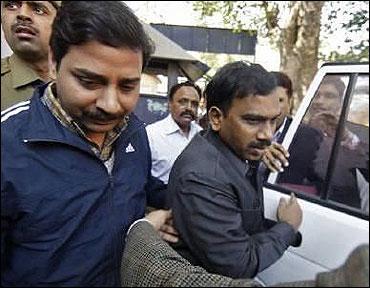


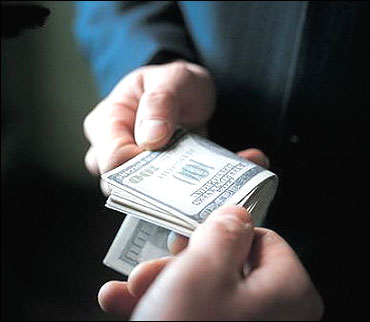


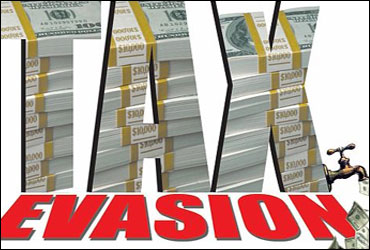



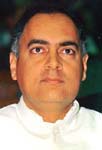

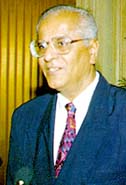 In a startling revelation this week, B M Oza, India's ambassador to Sweden between 1984 and 1988, has accused then prime minister Rajiv Gandhi of having taken bribes to sign the Bofors gun deal. We reproduce an exclusive extract from the ambassador's memoirs, a ringside view of the Bofors drama.
In a startling revelation this week, B M Oza, India's ambassador to Sweden between 1984 and 1988, has accused then prime minister Rajiv Gandhi of having taken bribes to sign the Bofors gun deal. We reproduce an exclusive extract from the ambassador's memoirs, a ringside view of the Bofors drama.